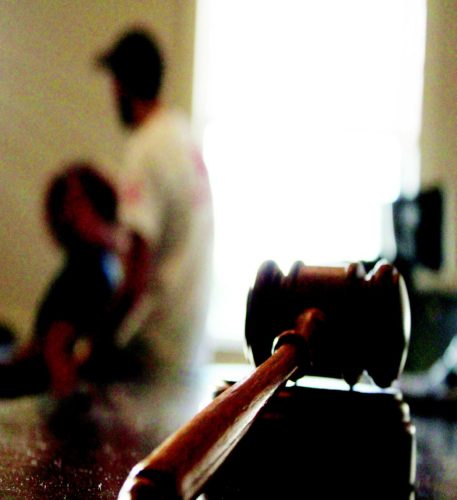 Grace Hutchison - The Yellow Jacket
Grace Hutchison - The Yellow Jacket The Oct. 9 Student Senate meeting began with the weekly invocation led by its president, senior history major Tyler McCoy. Following the prayer, the meeting contained the organization’s signature style of short, concise tasks including role call, committee meetings and the bureaucratic voting on the approval of minutes.
To some, the rigid routine and structure of the senate’s meetings may seem monotonous. To others, including freshman political science major Alexandra Morar, it’s a source of great appeal.
“I love how it runs like an actual congress,” said Morar, who transitioned into her role on the senate just a few weeks ago.
Having experience in student government since fourth grade, which resulted in her being president of her graduating class in high school, Morar said that she enjoys the structure of the senate because of her high school government’s laid-back attitude.
After being elected and officially sworn in, Morar ref lects on her experience.
“It feels like a great accomplishment,” Morar said. “I feel proud to represent the students but also some pressure.”
Morar is one of the four freshmen senators inducted at the beginning of the semester, who placed their hands on a Bible and swore to accurately represent the student body. For Morar, that was one of her favorite memories of her senate experience so far.
“I loved being able to put my hand on the Bible when I was being sworn in. That was such a special moment,” Morar said.
Among Morar’s current goals within the senate is to revitalize Lake Juanita, as well as balance her role within the Treasury and Budget Committee.
Morar was able to select which committee to serve under, and decided upon the treasury and budget committee because she enjoys keeping records. The decision to allow people to volunteer into their committee positions is different from years past.
“This year I just let everyone choose,” McCoy said. “I just encouraged them to split up evenly… I think if I let them chose they will obviously feel more engaged.”
McCoy said that says there are no strict policies that are set on helping freshmen leap into their roles as senators, and the upperclassmen “help them whenever they can.”
The freshmen, who McCoy described as “diverse” in majors, ranging from biology to political science, have integrated into their committees and use the upperclassmen senators as their mentors.
“Really a lot of the work gets done in the committees,” McCoy said. “They can of course always come to me if they have questions on anything.”
McCoy says the senators’ attendance of meetings prior to entering their positions helped their understanding of how the senate operates.
“They came as public before they were elected, so they got to see how things work,” McCoy said.
As his senior year progresses, McCoy sees the freshmen as the future of the senate.
“I see a lot of potential in them, they’re very engaged,” McCoy said. “They’ve integrated great into their committees and in the larger senate. I’m very happy with them so far and I think that they will have great contributions to the senate.”
